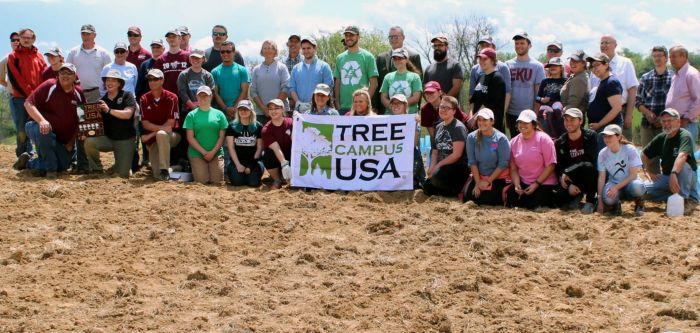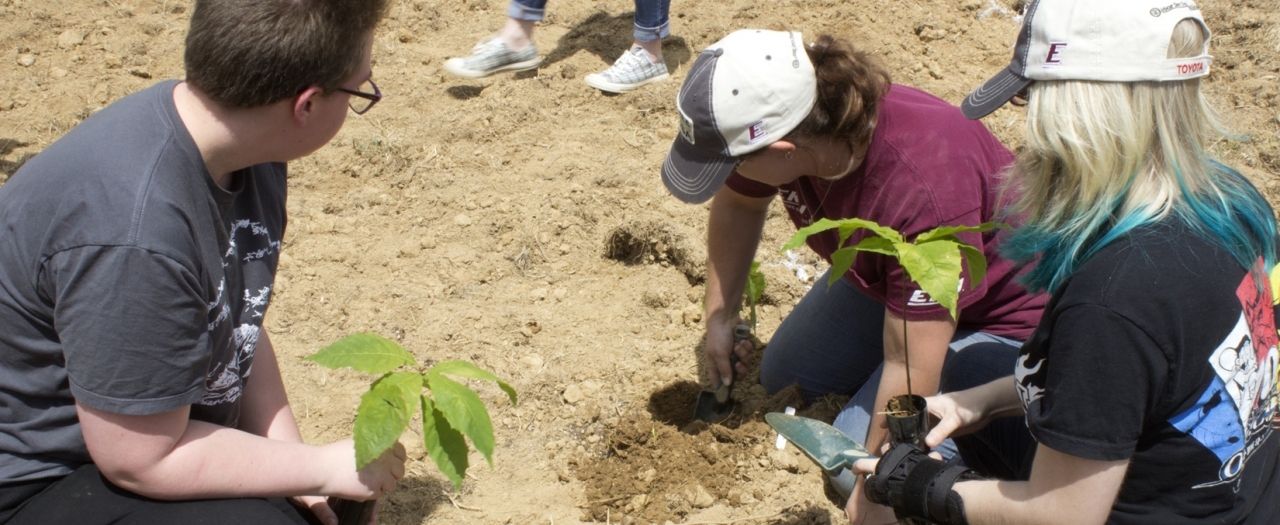With the planting on Friday, April 22, of approximately 1,200 saplings, Eastern Kentucky University joined in a “noble and exciting” effort to restore the American chestnut tree to its past glory.
EKU faculty, staff and students were joined by American Chestnut Foundation and government officials at a site near Taylor Fork Ecological Area at the southern edge of the Richmond campus.
The chestnut, once one of the most common and important tree species in the eastern United States and highly valued for wood products and as a food source, was wiped out by blight in the first half of the 20th century. It is believed that the seed orchard at EKU, one of only four in the South and part of a 30-year effort by the Foundation, will enable the propagation of a blight-resistant species.
Actually, only a relatively small number of the EKU saplings will survive rigorous testing and analysis.
“We only want the very best trees, so we plant hundreds of trees” said Tom Saielli, southeast regional science coordinator for the American Chestnut Foundation. “We’ll kill everything that isn’t superior. We’ll end up with 150 to 160 trees in a few years, and we expect only half of those to be good.”
 The University received a $1,000 Tree Campus USA Arbor Day Mini-Award for the orchard, and the saplings were provided by the American Chestnut Foundation.
The University received a $1,000 Tree Campus USA Arbor Day Mini-Award for the orchard, and the saplings were provided by the American Chestnut Foundation.
“Finding a good site and a good orchard steward is very challenging,” Saielli said. “EKU is turning out to be one of our best partners. We couldn’t do this without EKU, and (the University) gets to participate in something that’s noble and exciting.”
In order for EKU to host a seed orchard, it needed to dedicate the land for 35-40 years and commit to care of the trees. The restoration of the species is “an important mission for EKU because American chestnuts were an important part of our cultural and ecological heritage in eastern Kentucky forests,” said Dr. Jennifer Koslow, assistant professor of biological sciences at the University.
The orchard also benefits EKU students.
“(It) will provide an excellent educational opportunity for our students to learn about tree care, ecology, plant pathogens and the historical importance of the American chestnut,” Koslow said. “It will also provide them with an opportunity to contribute to an ambitious restoration program. After the initial planting, the orchard will be closed to the public while the trees get established, but there will be educational signage, and we will be having events in the future that would allow the public to interact with the trees themselves.”
The April 22 ceremony also featured remarks from Rex B. Mann, a retired USDA Forest Service official and a now a private forestry consultant focused on restoring the American chestnut.
